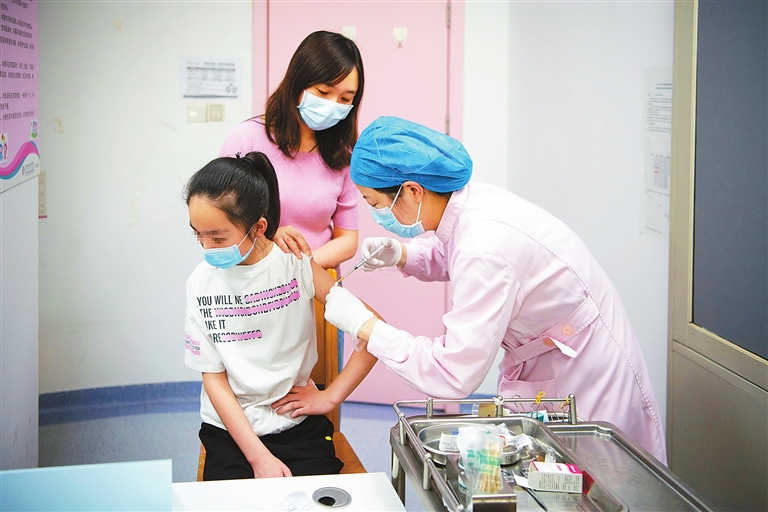
HUANG YING, a 25-year-old resident in the eastern Chinese city of Xiamen, used to fret over whether to get an HPV shot in the Hong Kong Special Administrative Region as it is frequently out of stock on the Chinese mainland. She decided to wait for a while when she learned that China had produced its first self-developed HPV vaccine: Cecolin. Jointly developed by Xiamen University and Xiamen Innovax, a subsidiary of Wantai Group, Cecolin makes China the third country in the world to achieve an independent cervical cancer vaccine supply after the United States and the United Kingdom. It has been available in Chinese provinces including Hubei and Jiangsu since May and is expected to be offered nationwide by the end of this year. According to the World Health Organization (WHO), cervical cancer is the fourth most common cancer in women. In China, there were approximately 106,000 cases of cervical cancer and 48,000 deaths from the disease in 2018. HPV vaccines were first available on the Chinese mainland in 2017 when Cervarix, a bivalent HPV vaccine by the British pharmaceutical company GlaxoSmithKline, hit the market. However, the short supply of the vaccines on the Chinese mainland drove many people to places like Hong Kong to get vaccinated. Cecolin is expected to be a game-changer. “The larger production capacity and lower price promise greater accessibility of the vaccine,” said Zhang Jun, one of the leading members of the vaccine research team. A single injection of Cervarix costs 580 yuan (US$82) and the total cost for a complete course of three adds up to 1,740 yuan, while a shot of Cecolin is priced at 329 yuan and only two shots are needed for those aged 9 to 14. Road to breakthrough Zhang, also deputy dean of Xiamen University’s School of Public Health, was one of the scientists that made the homegrown vaccine possible. After graduating in 1997, he became a vaccine researcher at Xiamen University, which went into collaboration with the biotech company Innovax in 1998 to develop genetically engineered vaccines using Escherichia coli (E. coli). After making a breakthrough in the development of a hepatitis E vaccine in 2001, Zhang and his colleagues started their endeavor to develop HPV vaccines using E. coli. Despite widespread doubts about the feasibility of producing complicated virus-like particles using E. coli, the research team managed to devise a candidate vaccine within five years, which went into clinical trials in 2007. In the next 10 years, a total of 9,989 eligible women were enrolled in three phases of randomized and double-blind trials to evaluate the efficacy, safety and immunogenicity of the novel bivalent HPV-16/18 vaccine. After passing clinical trials, Cecolin, developed by more than 1,600 researchers and medical workers, was given a green light in late December 2019 by Chinese regulators for the domestic market. Accessible to more women Earlier this year, Xiamen Innovax applied for the WHO’s “prequalification of vaccines” in hopes of taking its homegrown HPV vaccine global, said Li Shicheng, vice general manager of the biotech company. “If approved, it could benefit more women not only in China but also in other low-income countries because of its lower cost and higher accessibility, and thereby advance the prevention and elimination of cervical cancer worldwide,” Li said. So far, Innovax has inked contracts with at least four countries along the Belt and Road including Indonesia and Bangladesh to provide the HPV vaccines. The team is also developing a nine-valent HPV candidate vaccine, which is expected to enter phase three clinical trials this year. In September 2019, Xiamen Innovax signed an agreement with GlaxoSmithKline to develop the next-generation HPV vaccine together. In Innovax’s factory in Xiamen, production lines for nine-valent HPV vaccines are under construction. Jointly designed and built by the two companies, the lines are in compliance with Chinese, U.S., the European Union and WHO standards. “The cooperation shows that our work is highly regarded by international academia and the industrial community,” said Li. (Xinhua) | 
